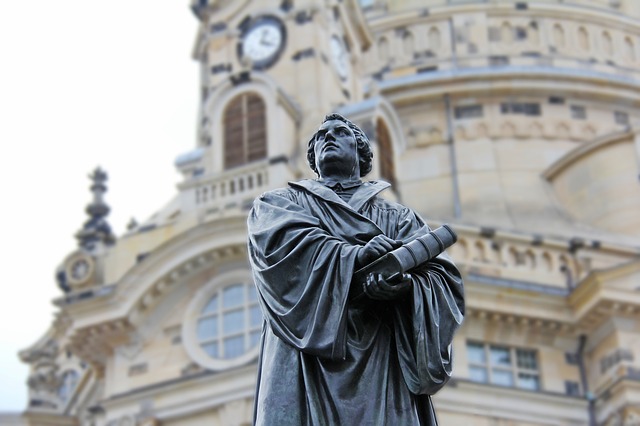
With the 500-year anniversary commemorating Martin Luther nailing the 95 Theses to the door of the Wittenburg church fast approaching, the Reformation and the Christian faith has never faced a more challenging time. Christians of both sides of the Tiber find themselves arrayed on all sides with threats within and outside the Church as many seek to liberalise, or modernise the faith to make it more palatable to the modern man or woman.
500 years ago, Martin Luther and the Reformers started a theological debate over the role and sale of indulgences to the Christian peoples across Europe. Unfortunately, the result ended up with the breaking up of the united Western church due largely to political motivations by kings and princes. Theologically, the basis for the Reformation was the role of the authority of the Church, and the applications of the doctrines of grace and salvation.
Fast forward to the present day in the 21st Century, we have now reached a time of pluralism in our societies, and pluralism within our churches. We have some denominations which completely have lost the spirit of the Reformation and have no interest and see no interest in joining in a united visible church, whilst other churches seek to promote false ecumenism with groups that are contrary to the doctrines and teachings of Christianity.
Platitudes that soothe the ear
Orthodoxy and the historical grasp of the faith is found to be poor if not virtually non-existent for some Christians as many pastors and preachers focus more on spiritualism or platitudes that soothe the ear, but extinguishes the fire in the soul.
I have personally found many people who identify as Christians or are at least culturally Christian fail to realise that morals are absolute, or struggle with understanding their place in society in relation to how much Christians should involve their beliefs in a secular world.
Ultimately, the core of Christianity, that is the holy sacrifice of Christ on Calvary for the atonement of sins being made real for us, has been shuffled into the bottom of the deck, and social justice, equality, egalitarianism, and humanist love has taken its place. Recovering the reality of the cross for our modern times is essential for faith that is deep and rooted.
How shall we?
Proper formation of a Christian is essential. More and more my low church friends are realising, appreciating, and applying the ancient Creeds and rites of the Church into their lives and their churches. Recovering the ancient traditions that are timeless and untainted by modernist thinking is a great starting point to grasping the full power and purpose of Christianity.
Personally, I read classics such as CS Lewis in tandem with good secular professors, such as Jordan Peterson, who appreciate the values of Christianity and its contributions to the world. If Christianity is a meeting of heaven and earth, a meeting of God and man, then it is vital we strike this balance to be neither too mystical (leading to impracticality), nor too shallow (leading to burn out).
Reigniting interest in the Reformation will help Christians understand the differences in denominations and help further deepen the appreciation for our faith heritage.

Jack is studying Commerce and Arts at Macquarie University, he is part of a family of five, his interests include politics, church history, and writing on controversial subjects.
Whilst he is theologically Anglican, he attends Gracepoint Presbyterian and serves the community through music.
Jack Liang previous articles may be viewed at